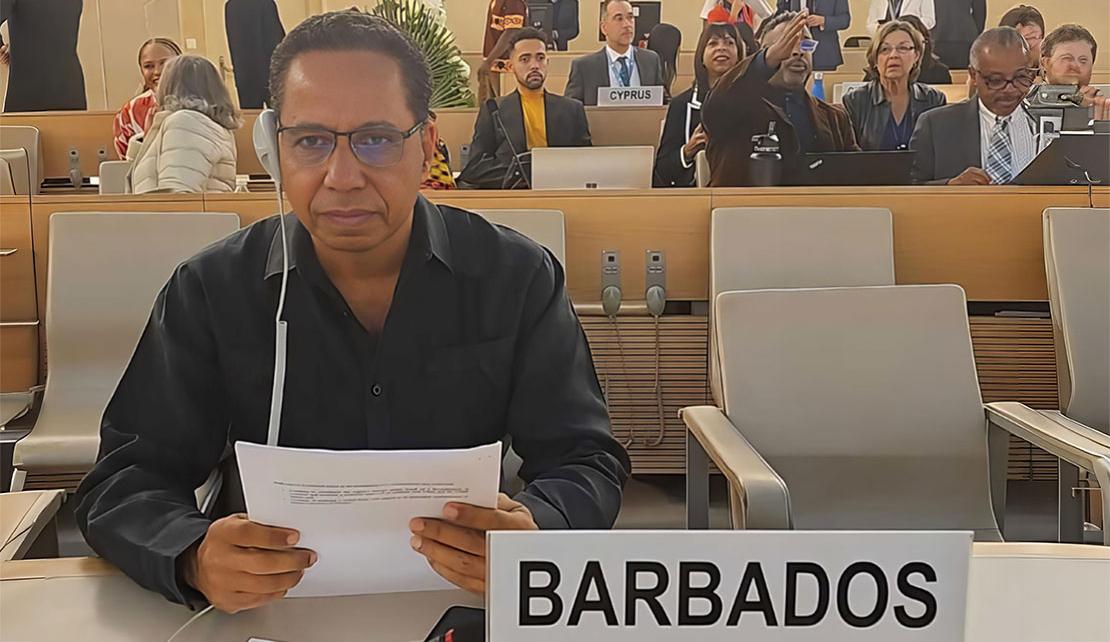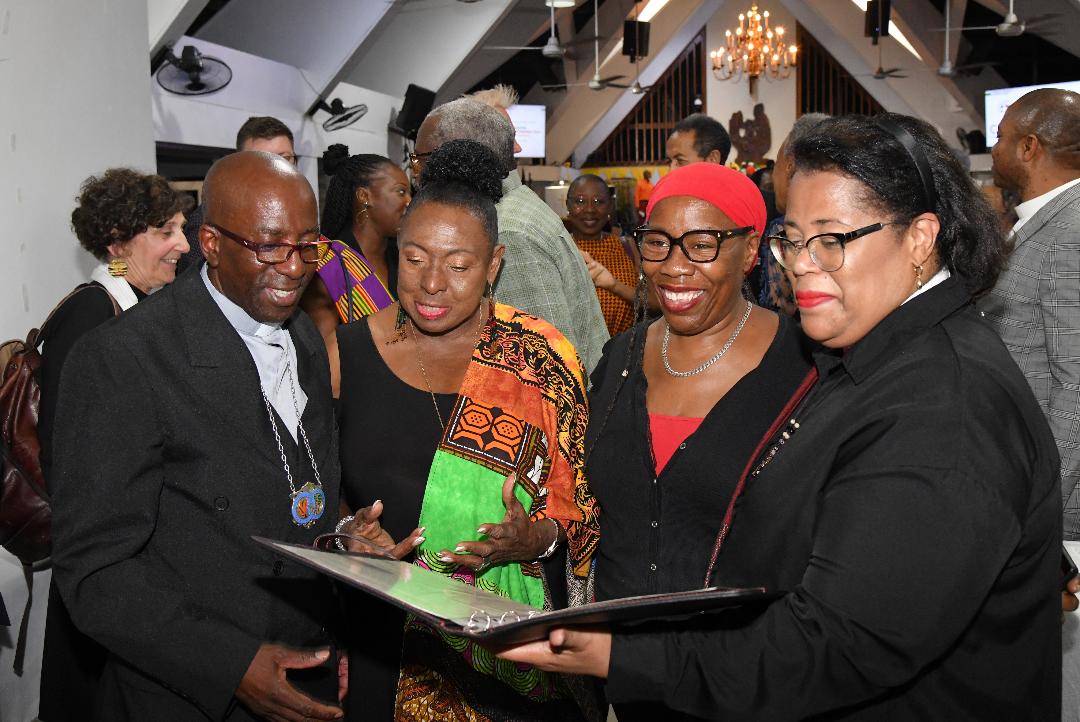#MontegoBay, July 5, 2018, Bahamas – The 39th Regular Meeting of the Conference of Heads of Government of the Caribbean Community (CARICOM) got underway with a clarion call for greater Caribbean integration among the 15 member-states and associates.
Prime Minister, Dr. the Hon. Hubert A. Minnis led The Bahamas delegation to CARICOM, July 4-6, 2018. Among the key agenda items — in closed 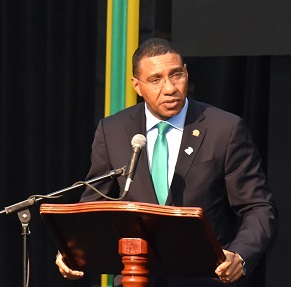 business sessions – are crime and security strategy, disaster management and climate change, and the implementation of the CARICOM Single Market and Economy (CSME).
business sessions – are crime and security strategy, disaster management and climate change, and the implementation of the CARICOM Single Market and Economy (CSME).
The opening ceremony at the Montego Bay Convention Centre on Wednesday night showcased a taste of colourful Jamaican culture with performances by the Hertford Folk and Cultural Group.
Addressing the opening ceremony were: His Excellency Ambassador Irwin LaRocque, Secretary-General of CARICOM; the Hon. Gaston Browne, Prime Minister of Antigua and Barbuda; Dr. the Rt. Hon. Keith Mitchell, Prime Minister of Grenada; the Hon. Mia Mottley, newly-elected Prime Minister of Barbados; His Excellency Jovenel Moise, President of the Republic of Haiti; and the Most Hon. Andrew Holness, Prime Minister of Jamaica and Chairman of CARICOM.
The underlying message from the speakers was the need for deeper Caribbean integration to tackle the various issues facing the region as Small Island Developing States. Such threats are climate change, and “the unilaterally devised and universally imposed doctrines of the OECD and FATF to be elevated above the welfare of our people and the development of our countries,” said Prime Minister Browne.
CARICOM Secretary-General LaRocque noted that the arrangements put in place for the conduct of the Meeting ensure an atmosphere conducive to productive sessions here in Montego Bay, which has a rich history in the integration movement.
“It was here in Montego Bay in 1947, that the Conference on the Closer Association of the British West Indies rekindled the integration movement.  It was here in 1997 that the decision to admit Haiti to Membership of the Community was taken, and it was here in 2003 that the Rose Hall Declaration on Caribbean Community Governance was adopted.
It was here in 1997 that the decision to admit Haiti to Membership of the Community was taken, and it was here in 2003 that the Rose Hall Declaration on Caribbean Community Governance was adopted.
“The opportunity is with us once again to have a historic moment in Montego Bay with respect to the CARICOM Single Market and Economy (CSME),” he said.
Haiti’s President Moise stressed the need for combined efforts in the integration process. “It’s clear that our organization confronts a difficult situation. It is important that we combine our efforts to find ways and means to strengthen the process of regional integration and also to define, in a concerted manner, the contours of post-Cotonou relations between the countries of the Asia, Caribbean and Pacific Group (ACP) and the European Union,” he said.
Prime Minister of Barbados said the time has come for the activation of the Single Domestic Space for hassle-free intra-regional travel and to introduce the long-discussed CARICOM multipurpose ID card.
“Something is therefore fundamentally wrong when travel to Miami or New York is more accessible and cost-effective for our people than travel to 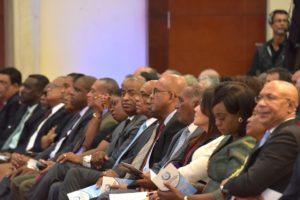 their nearest Caribbean neighbour. We simply have to do better.”
their nearest Caribbean neighbour. We simply have to do better.”
As the major shareholder in LIAT (Leeward Islands Air Transport Ltd.), Ms. Mottley said her government commits to working assiduously and urgently with its other partner governments to enhance LIAT’s operations and profitability, while providing an affordable and reliable service to enable citizens to move throughout the Caribbean.
Prime Minister Holness of Jamaica as Chairman of CARICOM is expected to address his colleagues on the Report of the Commission, which includes 33 recommendations aimed at addressing the structural and organizational deficiencies within CARICOM. Among them is that member-states should facilitate the full, free movement of people within CARICOM, except in cases of security and public health risks.
By: Lindsay Thompson (BIS)
Photo Captions:
Header: Prime Minister of The Bahamas, Dr. the Hon. Hubert Minnis shown during a presentation, on large screens.
First Insert: Chairman of CARICOM, the Most Hon. Andrew Holness, Prime Minister of Jamaica.
Second insert: Audience
BIS Photos/Yontalay Bowe
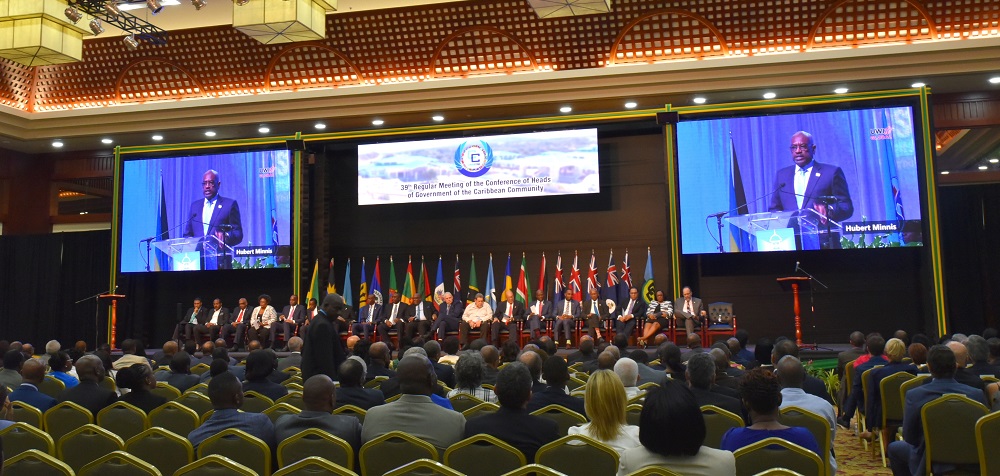

 Caribbean News1 week ago
Caribbean News1 week ago
 News1 day ago
News1 day ago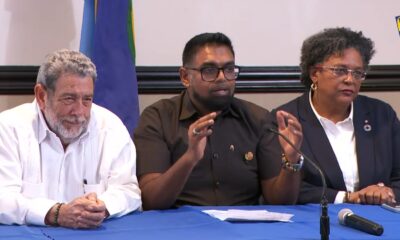
 Caribbean News1 week ago
Caribbean News1 week ago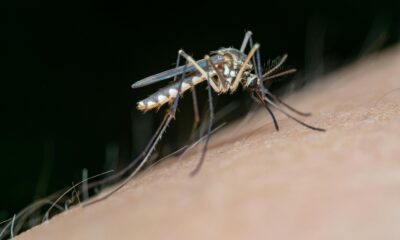
 Health1 week ago
Health1 week ago
 Health1 week ago
Health1 week ago
 Caribbean News3 days ago
Caribbean News3 days ago
 Caribbean News6 days ago
Caribbean News6 days ago
 Health1 week ago
Health1 week ago



